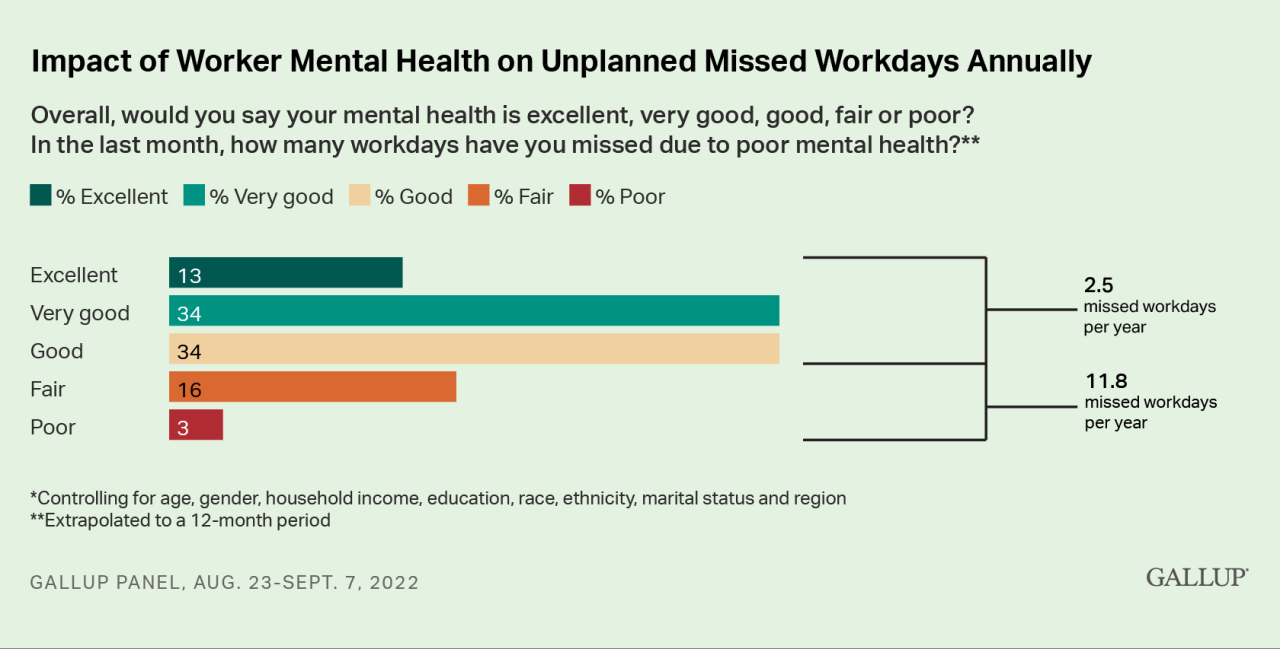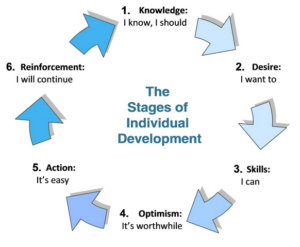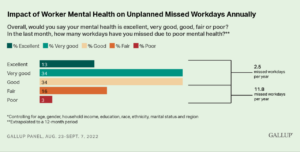 Recognizing the mental health of your employees may not seem like a way to lower costs and raise productivity in your business, but a look below the surface tells a different story. Depression cost the United States $83 billion a year. Nearly two-thirds of this $83 billion is from lower productivity and workplace absenteeism.
Recognizing the mental health of your employees may not seem like a way to lower costs and raise productivity in your business, but a look below the surface tells a different story. Depression cost the United States $83 billion a year. Nearly two-thirds of this $83 billion is from lower productivity and workplace absenteeism.
Depression is reaching epidemic proportion in the United States and the cost to business and industry may be on the rise. Smart employees are recognizing that depression is devastating to the workplace. It leads to decreased work productivity, which in turn leads to higher costs for employers. Depression weakens the immune system, so depressed employees become susceptible to physical disorders, which leads to higher health care costs for employers.
Additionally, there's the hidden cost of the work environment. Contented, happy employees add to the work environment to attract better employees, which results in higher productivity, better working relationships among team members and co-workers, more creative ideas for development and improvement of products, and an overall atmosphere of wellbeing and efficiency.
More than 1 in 20 people in the United States are depressed, and of those 80 percent say their depression interferes with their ability to work, according to the Centers for Disease Control. The highest rate of depression is among people 40 to 59 years old. However, depression is the leading cause of disability among Americans ages 15 to 44, according to the National Institute of Mental Health. And in a report by Thomas Reuters , disability-related costs for a year, on average, are $1,038 for depressed people and only $325 for non-depressed people. These startling statistics are a stark reminder that depression is problematic for employers.
Depression symptoms include difficulty in being able to concentrate or make decisions, a lack of energy, and an inability to keep on task or maintain an interest in the task. These symptoms contribute to an employee's decreased productivity or increased absenteeism. People who are depressed are often anxious and anxiety ridden and they may be irritable and have trouble in getting along with coworkers. They may neglect their appearance or be unable to cope with customers. They may find it difficult to start tasks or they may lose motivation to complete tasks and meet deadlines.
Depression makes it difficult for depressed people to fully think through a problem, so they may lack the confidence to make decisions. Feelings of shame, humiliation, or anger may keep them from reaching out for help. They may display tendencies to be defensive, which makes it difficult for supervisors to offer constructive criticism.
What can-and what should-employers do? First, employers must recognize that depression is a serious and growing concern in the workplace. Second, employers have options to offer employees who are depressed. Very seriously depressed employees should be guided to take advantage of the employees' health program regarding mental health issues. These employees may need to seek help from a therapist and may need antidepressant drugs. Employees who are mildly or moderately depressed may be helped through corporate training programs that are designed to help employees overcome depression and provide tools to allow them to maintain a state of contentment and happiness.
Contented and happy employees- employees who are not depressed – find satisfaction in their work, which translates into more productivity, fewer absences, and less health care costs. Plus, contended, happy employees create a work environment inviting to the country's best workers. Bottom line: contented people make better employees and cost the employer less in health care costs and in lost productivity.





